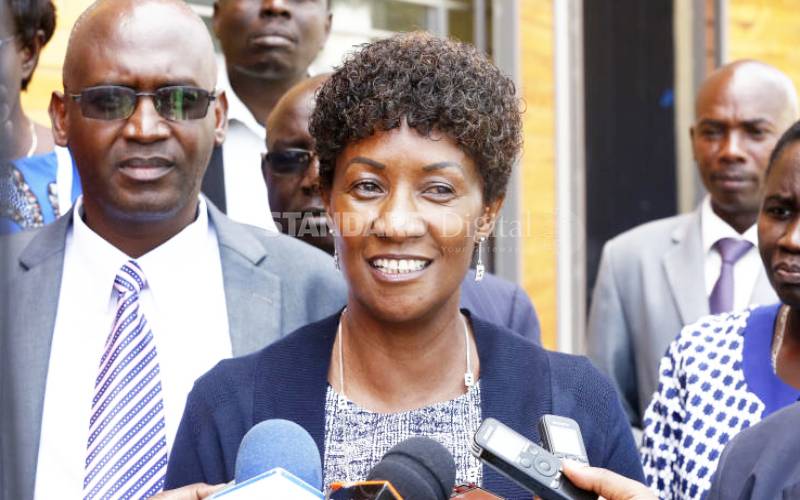×
The Standard e-Paper
Home To Bold Columnists

Teachers Service Commission CEO Nancy Macharia in Nakuru after inspecting the progress of the ongoing Teachers training on the Competency Based Curriculum (CBC) on April 24, 2019. [Kipsang Joseph/Standard]
If there is one place where ego trips can never be quenched, it’s in the classroom. And for good reason.